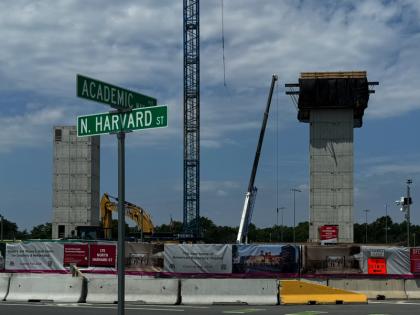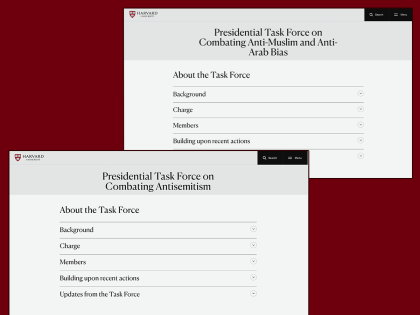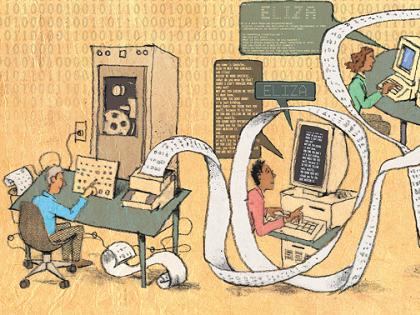Even beyond the campuses divided by the October 7 Hamas attack and ensuing Israel-Gaza war, scorching political assaults on universities, and promising presidencies cut short, the academic year, now mercifully past, wounded higher education and the wider society it serves in other ways. Here are reflections on a few of the lingering costs.
Diminishing academic freedom. When Columbia President Minouche Shafik appeared before the U.S. House Committee on Education and the Workforce on April 17, accompanied by the co-chairs of the university’s Board of Trustees, she was determined not to replicate the fine-grained arguments about how free speech and other interests are balanced in an academic setting that felled Harvard’s Claudine Gay and Penn’s Liz Magill after their testimony last December. Remarkably, the Columbia leaders managed something even more damaging. When the interrogating congressmen went after faculty members by name, and criticized academic terms used by students at the Columbia School of Social Work, Shafik not only didn’t demur: she agreed, sacrificing academic freedom to politicking.
The higher-education press, appalled, responded quickly. Inside Higher Education’s account of the hearing was headlined, “Columbia President Accused of Dishonest Testimony, Throwing Professors ‘Under the Bus.’” The Chronicle of Higher Education’s Len Gutkin, commenting on Shafik’s and the trustees’ disparagement of the academic terms, wrote, “When members of the board pass invidious comments on sociological concepts from academic fields they know nothing about, academic freedom is in peril indeed.” For all that, and Shafik’s decision the next day to summon the New York police to clear a campus protest (setting in motion the nationwide wave of encampments and occupations), it still wasn’t enough to stave off the intrusive political pressure. Concluding a subsequent New Yorker review essay, Harvard’s Bass professor of English Louis Menand wrote, “Academic freedom is an understanding, not a law. It can’t just be invoked. It has to be asserted and defended.…Even after Shafik offered up faculty sacrifices on the congressional altar and called in the N.Y.P.D., Republicans responded by demanding her resignation. If capitulation isn’t working, not much is lost by trying some defiance.”
Endangering disciplines. It comes as no surprise that the discipline under assault April 17 involved sociological studies of Jewish identity. Anything smacking of identity is in the sights of the academy’s harshest critics, who loathe teaching and research that touch in any way on diversity, equity, and inclusion. Enrollment and hiring in the humanities were already in sharp decline, for economic reasons (see James Engell’s “Humanists All,” January-February 2023, page 34). Under political duress, public universities have increasingly taken aim at some of the seemingly qualitative social sciences, like sociology, too. (Professionally oriented courses of study, like the sciences and engineering, remain in good standing.)
The irony, and tragedy, of this diminishing support are manifest from the horrors in Israel and Gaza. The roots of the lethal terrorism and bombardment lie deep in history, culture, religion, and past political decisions (ancient and recent): problems for which there are no technical, scientific answers. The potential sources of understanding and progress, if any, necessarily lie in the reviled “softer,” less applied disciplines, from which American students, colleges, and education budgeteers are most rapidly disinvesting.
Losing academic focus. Debates about higher education this past year had nearly nothing to do with effective teaching or research. The barrage of news coverage and politicking focused almost wholly on the campus discourse about the war; antisemitism and bias against Palestinians, Muslims, and Arabs; and, in April and May, the encampments that resulted in arrests of perhaps 3,000 students nationwide (out of nearly 19 million now enrolled in higher education). But even at Harvard, where things began so badly last October 7, most students were attending classes and studying most of the time, and most faculty members were teaching them and pursuing their research.
Yet the distraction was palpable. During the last regular Faculty of Arts and Sciences meeting, on May 7, Dean Hopi Hoekstra said that she had hoped to talk about such matters as the faculty’s work on artificial intelligence and other educational matters. But circumstances forced her to address other themes: “This year, our institution and higher education as a whole have been challenged.” Accordingly, much of the agenda was given over to reports from task forces on antisemitism and on anti-Muslim bias, and working groups on civil discourse and on institutional positions on public issues (see harvardmag.com/fas-task-24 ). Interim provost John F. Manning’s remarks on the decision to place pro-Palestinian students then encamped in the Yard on involuntary leave prompted questions about that policy—to the complete exclusion of other topics. Overwhelmingly, the faculty’s agenda (and the University’s) was set by the protests over the war and the political responses they prompted.
Undermining leadership. Compounding the problem is the crisis of university leadership nationwide. Imagine being asked to steer such institutions under current circumstances, when every constituency—students, faculty, staff, alumni, politicians—is pressing urgent demands on presidents, who often have only limited powers.
Particularly dismaying is the derogatory rhetoric aimed at such leaders by partisans on the U.S. House committee. Its April 30 news release, summoning the UCLA, University of Michigan, and Yale presidents for the latest grilling (Yale and Michigan were later swapped out for juicier targets, Northwestern and Rutgers), was typically headlined “Calling for Accountability: Stopping Antisemitic College Chaos.” Underscoring the tone, chair Virginia Foxx (R, North Carolina) provided a quote: “The committee has a clear message for mealy-mouthed, spineless college leaders: Congress will not tolerate your dereliction of your duty….” Such was the considered language of an official committee statement—destructive in effect, if not in intent.
Given the severe challenges, it is ominous that after the 2024 graduates tossed their mortarboards, Cornell, Harvard, Penn, and Yale (which announced a leader May 29) did not know who would be their regular presidents come the new academic year on July 1.
—John S. Rosenberg, Editor







